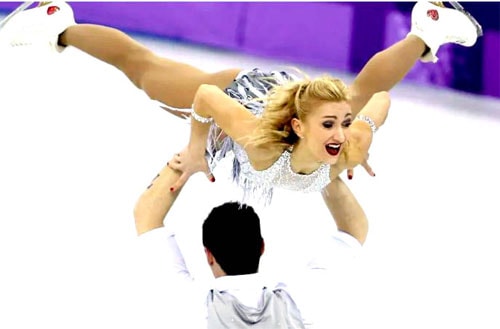Ice skaters will have to be at least 17 to take part in senior competitions after the sport’s governing body voted Tuesday to raise the minimum age from 15.
The decision by the International Skating Union (ISU) congress in Phuket, Thailand, came months after a Beijing Winter Olympics drugs scandal involving then-15-year-old Russian figure skater Kamila Valieva.
“It’s a very historic decision,” ISU president Jan Dijkema said, after 100 countries voted to support the measure, with only 16 opposed.
Valieva failed a pre-Games drugs test but was allowed to compete and then broke down after falling multiple times during her performance, with the global spotlight on her.
She finished outside the medals with questions swirling about the influence of her entourage following a tense and tearful post-routine encounter with her coach.
The ISU said that raising the age limit was on its agenda well before the Valieva case and acknowledged it had a duty of care to elite adolescent athletes.
The change will be phased in gradually over the coming years, reaching age 17 in the 2024/25 season. Ahead of the vote ISU director general Fredi Schmid acknowledged the body had faced media pressure and a “major attack” in the wake of the Olympics and reminded delegates the sport’s reputation was at stake.
“The moment of truth is obviously today because the credibility of the ISU will also be scrutinised. The media and the public will watch us very closely so don’t forget this,” he said.
The skating body’s medical advice backed raising the age limit to 17 arguing it would benefit young skaters physically and mentally, and help extend their careers. “I feel as administrators of the sport of skating it is your moral obligation and duty to provide these young skaters with the opportunity and time to develop… the skills they require in order to be successful at the senior level,” Dr Jane Moran from the body’s medical commission said.
“They have the right to develop themselves as people during their adolescent age… They don’t need us to be forcing them to compete.” A medical report said the change would allow junior athletes time to reach skeletal maturity. “The concern is that during a period of known skeletal vulnerability, the adolescent athlete may be exposed to excessive training and competition loads associated with high-level competition, which places the athlete at greater risk of injury,” medical report said.
It also warned that some elite adolescent athletes could experience a puberty delay for an average of two years as a result of the physical demands of training and inadequate energy intake.—APP









